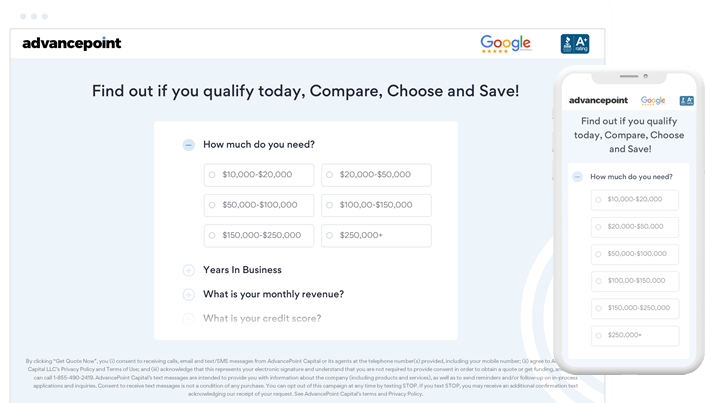Best Business Loans for Pharmacies
A community pharmacy has become a challenging business due to the competition in the healthcare industry of the big pharmacies like Rite Aid, Walgreens and CVS. Business financing gives the smaller pharmacy an opportunity to compete in many ways. With tailored pharmacy business financing solutions, these independent businesses can leverage funds to maintain and enhance their competitive edge, especially when they aim to purchase inventory to meet customer demand or remodel their premises to stay contemporary and inviting.
A pharmacy can use business loans for a variety of reasons including inventory, displays and equipment, advertising, renovations, expansion and other initiatives that can help the existing pharmacy grow. First Financial, for instance, offers assistance that can facilitate the purchase of bulk inventory or support a remodel, allowing your business to make these upgrades without waiting for your budget to stabilize.
Pharmacy financing solutions, like those provided by companies such as 1st Med, offer a robust portfolio of pharmacy lending options, ensuring that every pharmacist has access to the financial tools they need throughout their business's lifecycle. Knowing how to find the right pharmacy business loans to match your qualifications and needs is very important, so we have put together the most popular business funding products that would best suit your financing needs. This includes options designed for pharmacy acquisition, which can be an efficient path to owning a pharmacy that has an existing office staff, patient base, location, and equipment already in place.
Pharmacy Business Loans
There are many financing options that existing pharmacy owners can use to their benefit from our network of alternative lenders. Finding the right pharmacy financing that works best for your business may take some guidance. That’s why we put together the eight best small business loans options for pharmacies. Each of these financing options offers unique benefits such as pharmacy equipment financing, or straight-up funding and qualities that may work for your company. Take a look!

Long-Term Small Business Loans for Independent Pharmacies
Long term loans provides pharmacy financing for large projects and/or expansions requiring long-term loans greater than 2 years. Interest rates, terms, and monthly payments are attractive to small business owners. Notably, our pharmacy lending team is equipped to support independent pharmacies throughout such expansions, ensuring that their lending needs are met with tailored solutions. With organizations like Live Oak Bank, a leading SBA-preferred lender, pharmacists have access to dedicated services aimed at helping them purchase commercial real estate, acquire new pharmacy businesses, or refinance existing debt, effectively fueling their growth and stability.
For pharmacists looking to maximize their business's potential, tapping into equity could be a strategic move. Especially when considering an optimal pharmacy location with access to parking and public transportation, which is pivotal for client inflow and business growth. Utilizing resources such as Live Oak Bank's Resource Center could provide valuable guidance on business products, marketing strategies, and detailed customer spotlights enhancing operational success.
- Terms that range from 3 to 10 years
- Traditonal or SBA loan options
- Rates starting atr Prime + 2.25%
- Monthly and weekly payment options

Small Business Line of Credit for Independent Pharmacies
Line of credit is a popular option for pharmacy owners looking for a credit facility they can use on demand and draw money when needed, while you only pay interest rate on the outstanding balance.
- Rates starting at 1% per month simple interest
- Revolving line of credit
- Draw on demand up to credit limit
- No prepaymently
- Only pay interst on outstanding balance

Small Business Administration Loans for Community Pharmacies
SBA loans, such as the SBA Express program, which offers expedited loan decisions and increased lender status flexibility, are coveted by small business owners for their favorable interest rates and repayment terms. The Small Business Administration determines the eligibility criteria and underwriting requirements for these loans, helping community pharmacies thrive with necessary funding. It's important to note that each lender might have different criteria, including deposit requirements which for some industries like pharmacies.
- Rates starting at Prime + 2.25%
- Terms from 3 to 10 years for working capital SBA 7(a) (longer w/ real estate)
- Up to $350,000 without real estate as collateral
- Monthly Payments

Business Credit Cards
Business credit cards are a good supplement to other pharmacy business loans. Credit cards are quick and easy option to make purchases and pay expenses.

Short Term Small Business Loan for an Independent Pharmacy
Consider a short term pharmacy business loan as a strategic move for your independent pharmacy. With features like a streamlined application process, securing a Short term loan can be crucial, especially when it's time to restock your shelves with essential medications and health products. These loans, usually ranging from 6 to 24 months, are not just accessible but come with fixed rates and terms tailored for affordability. Furthermore, over the years, we have developed a streamlined approval process that allows borrowers to have quick access to funds, empowering pharmacy owners to maintain an optimal inventory without undue financial strain.
- Terms that range from 6 to 36 months
- Rates starting at 13 % APR
- Monthly or weekly payment options
- 600 + fico required

Business Cash Advance for an Independent Pharmacy
Business cash advance is a smart alternative to pharmacy business loans when qualifications are an issue. Advances are not loans, but rather an injection of capital based on future proceeds of the pharmacy space, providing flexible financial solutions for independent pharmacies. This option is particularly beneficial for pharmacists who are considering the significant financial commitments involved in their operations, such as taxes, and deciding between renting versus purchasing a space with a commercial loan to see which could be more financially advantageous for their pharmacy.
- Revenue based funding
- Flexible repayment process attached to future sales
- Factor rates starting at 1.18% of purchase price
- Reconciliation monthly available
- Convenience ACH payments either weekly or daily

Merchant Cash Advance for an Independent Pharmacy
Merchant cash advance, also know as a future receivables sales agreement, is another option when a pharmacy can't get approved for a traditional loan. Merchant cash is an advance of future receivables, repaid by a percentage of future credit card processing.
- Repaid based on a percentage of future credit card sales as repayment
- Revenue based funding
- Estimated time to repay from 3 to 18 months
- No set time to repay as its attached to future credit card sales

Equipment Financing for Pharmacies
Equipment financing is a good option when purchasing new equipment at affordable terms and payments, especially when it includes the latest technology for dispensing over-the-counter medications effectively. This strategic investment can lead to improved customer service and increased sales.
- Lease and/or loans
- Factor rates starting at 1.25% or interest rates starting at 13% APR
- Monthly or weekly payment options
- Terms from 3 to 5 years

Get Started Today
AdvancePoint Capital makes the loan application process a simple, straightforward experience.
How to Qualify for Pharmacy Loans
Its important to know how to qualify for pharmacy business loans. Understanding the eligibility criteria for pharmacy business loans is pivotal. The qualifications and requirements can differ from small business loans to a business line of credit, yet some basic qualifiers remain consistent.
- Application: Lenders will require you to complete an application that showcases not just your pharmacy's operational details but also personal information about the business owner which reflects on lender status.
- Credit: Assessing both business and personal credit histories is crucial for lenders to evaluate creditworthiness. High-credit-score applicants could see more favorable terms. Keeping abreast of credit reports and actively improving your scores can prove beneficial.
- Documents: Pharmacies must meticulously maintain financial documents as lenders scrutinize these to assess eligibility criteria. Key financial statements such as cash flow analyses from bank statements, profit & loss from tax returns, and the balance sheet, as well as accounts receivable/payable aging reports, are commonly requested evidence of borrower stability.
- Time in the Pharmacy Business: Proven experience in the pharmacy field bolsters your loan application. Lenders view tenure in business as a marker of reliability, hence mature pharmacies typically find more financing options available to them compared to startups.
- Collateral and Personal Guarantees: At times, collateral such as real estate or essential equipment, may be required to secure the loan's repayment, aligning with the borrower's commitment. Personal guarantees are often expected, particularly from owners of nascent or smaller pharmacies.
Qualifications and requisites fluctuate across different financing products, so it is essential to compare options to find the most suitable package for your specific pharmacy's needs.
Apply For Pharmacy Business Loans Today with Advancepoint!
Common Uses and Benefits of Financing for Pharmacies
When considering financing a business, its important to find out the "why" first. The reason, as well as your qualifications, will dictate what products and terms you may be offered. The "why" also will tell you whether the benefits of business financing will out way the costs and terms known as the benefits vs. cost analysis. Lets look at some of the most popular reasons why financing is a good idea for you and your business.
Working Capital Loan for Pharmacy Operations
Like any business, a pharmacy has a variety of expenses to manage such as inventory, payroll, rent/mortgage, and other expenses related to daily operations. It's not uncommon for cash flow to become tight due to fluctuating revenue, changes in market conditions, and the timing of reimbursements. Ensuring you have access to appropriate pharmacy business financing solutions can provide a safety net for your operations. A working capital loan, for instance, is an essential tool to smooth cash flows during those unpredictable times.
Inventory Financing
Inventory is key for a pharmacy. If you don't have the prescriptions or other household items at the pharmacy, you can be at a strategic disadvantage to competitors. When you need to place an inventory order, the expenses can be significant. Exploring pharmacy lending options such as a merchant cash advance, where payments are tied directly to sales, can be particularly strategic when the inventory will not be sold right away. Having a credit facility to access funds is critical to smooth pharmacy operations.
Renovations/Facility Maintenance
A pharmacy, like any other business, needs a facility that is appealing to the customer's experience. The overall appearance and flow of the premise can create more sales and retain customers. Renovations to keep the pharmacy relevant and current can be costly, but they are a strategic part of a pharmacy acquisition, enhancing the inherited infrastructure. Facility maintenance is important for providing a safe environment for staff and customers. Repairs and equipment purchases can add to costs and expenses. Most renovations will require some type of financing, which may be more accessible when seen as a continuation of improving an existing establishment through a recent acquisition, such as the notable 95MM pharmacy acquisition.
Marketing and Advertising
To keep relevant and to compete for customers with the big box pharmacy, advertising and marketing are important components of gaining a competitive advantage. Harnessing your business expertise in this field can significantly impact the effectiveness of your campaigns. Furthermore, strategic marketing can highlight the advantage of your pharmacy location, potentially making it a community favorite. Advertising investments cost money and financing may be necessary to achieve marketing goals.
Making Payroll
The pharmacists and staff are vital parts of the pharmacy and the customer experience. Funding payroll is not an option, but a necessity. Having a credit facility to cover cash flow shortages is a must.
Adding Pharmacy Services
Independent pharmacies aiming to thrive amidst giants like Walgreens, CVS, and Rite Aid can benefit from unique offerings such as medication therapy management. Moreover, with the appropriate pharmacy financing, independent healthcare businesses can expand services and enhance patient care, helping to foster loyalty and improve health outcomes.
Pros and Cons of Business Financing for Pharmacies
Pro's
- Financing provides access to funds for purchases and pay expenses—something our dedicated pharmacy lending team is well-versed in facilitating for pharmacists looking to grow their practice.
- Provides access to capital for business expansion of a retail store, including acquiring, equipping, or expanding a pharmacy with the savvy use of debt and equity.
- A method to build business credit and can lead to future financing opportunities, which may include strategies for pharmacists to cash-out some equity as they bring on partners to expand their business horizons.
Con's
- Financing adds debt to the balance sheet of a retail store, often including the need to account for the dollar value associated with goodwill, fixtures, and fittings.
- Financing payments add to monthly expenses and can put stress on cash flow, sometimes requiring a detailed review of financial strategies, possibly even examining goodwill loans tailored for retail businesses.
- The risk of overextending the business which creates delinquency and/or default, impairing credit and potentially jeopardizing future borrowing potential, with lenders paying close attention to goodwill valuation during recovery.
What Lenders offer Business Loans to Pharmacies?
There are a variety of business loan originators that offer business financing. The following are a list of the most commonly used financial institutions and originators
- Banks and Credit Unions- Banks and credit unions offer both business term loans, commercial real estate loans, business line of credit and in some cases SBA loans if the bank is an SBA approved lender.
- Business Loan Brokers- Business loan brokers also known as independent sales organizations represent a variety of products from business term loans, lines of credit, SBA loans, invoice financing, equipment financing, merchant cash advance, and other unique products.
- Online Business Lenders- These online financial institutions offer typically business loans and/or business lines of credit.
- Invoice Finance Companies- Invoice finance companies also know as Invoice factors specialize in purchasing invoices from retail stores.
- Equipment Financing Companies- Equipment financing companies offer business loans and/or leases when new or used equipment is purchased from dealers. The equipment itself is used as collateral to extend terms.
- Merchant Cash Advance Funders- Merchant cash advance funders offer the sale of future receivables from a retail store at a discount to the funder.
How to Apply for a Business Loan for your Pharmacies
- Chose a lender (business loan originator)- Select a lender or originator that best matches your qualifications with products, rates and terms.
- Take Application- When taking application you will need to select products to apply for first, then fill out the appropriate application for the product as well as provide specific documentation such as bank statements or other financial statements depending on the business funding product you are choosing to apply for.
- Receive Offers- Offers should be delivered by term sheet and/or specific State disclosures. Compare offers from multiple originators and consider all aspects of an offer and not just the rates.
- Select an Offer-Once you have done your homework and compared offers. Notify the lender (originator) of your selection. You will be asked to sign an agreement and provide closing condition documents for final approval and clear to fund once the lender completes all verifications.
- Receive Business Funds- After given a clear-to-fund, the repayment process is set up and your funds are sent to your business bank account.
*Application process may vary depending on the lender and the products you chose to apply for.
Why Small Businesses turn to AdvancePoint Capital?
Experience with community pharmacies. We’ve helped countless pharmacists secure the necessary funds for their enterprises through our dedicated pharmacy lending team. Our simple diverse range of pharmacy business financing solutions and our network of alternative lenders gives community pharmacists the freedom and flexibility to find a financing option that's tailored to the unique challenges and lifecycle of their business. With AdvancePoint Capital, you’ll get the benefit of loan specialists, who are indeed well-informed advisors, familiar with the intricacies of pharmacy industry financing. Our straightforward application process and a trusted reputation in the pharmacy funding industry streamline your journey to securing a loan.
- Experience – Our seasoned pharmacy lending team has been assisting pharmacies industry-wide for years, understanding the ebbs and flows of pharmaceutical business needs.
- Trust – With consistently positive reviews and testimonials from independent pharmacists, we've built a foundation of trust in our support and services.
- Loan Specialists – We are not just lenders; our experienced business funding specialists are advisors who have an extensive grasp of the pharmacy sector and who foster lasting business relationships over mere transactions.
- No cost, no commitment quotes – Pharmacy owners can count on transparent, obligation-free offers featuring competitive rates, terms, and loan amounts, ensuring informed decision-making.
- Products – A plethora of financing products are within reach through us. We provide more than just what we have; we offer the best of what’s available in the marketplace to accommodate most pharmacy businesses.
Navigating pharmacy financing can be overwhelming, but it doesn’t have to be. Factors like credit history, time in business, and financial documentation may seem daunting, especially when dealing with traditional banks. However, with AdvancePoint Capital, you're not just finding a funding service; you're discover
Frequently Asked Questions
The Bottom Line
Searching for a business loan for your pharmacy requires consideration of your qualifications, the specific need verses the available products and terms. Its important to shop and compare offers and consider the rates, product features, terms and conditions before deciding what is the best financing options for your pharmacy. Banks, lenders and business loan brokers can offering varying qualifications, products and terms so getting terms in writing to consider is essential to make good decisions.
AdvancePoint Capital can take those challenges your pharmacy may have at getting approved at a bank and turn those problems into the right solution with various working capital loan programs at our disposal.
Get Started and Grow Your Pharmacy Business Now!




